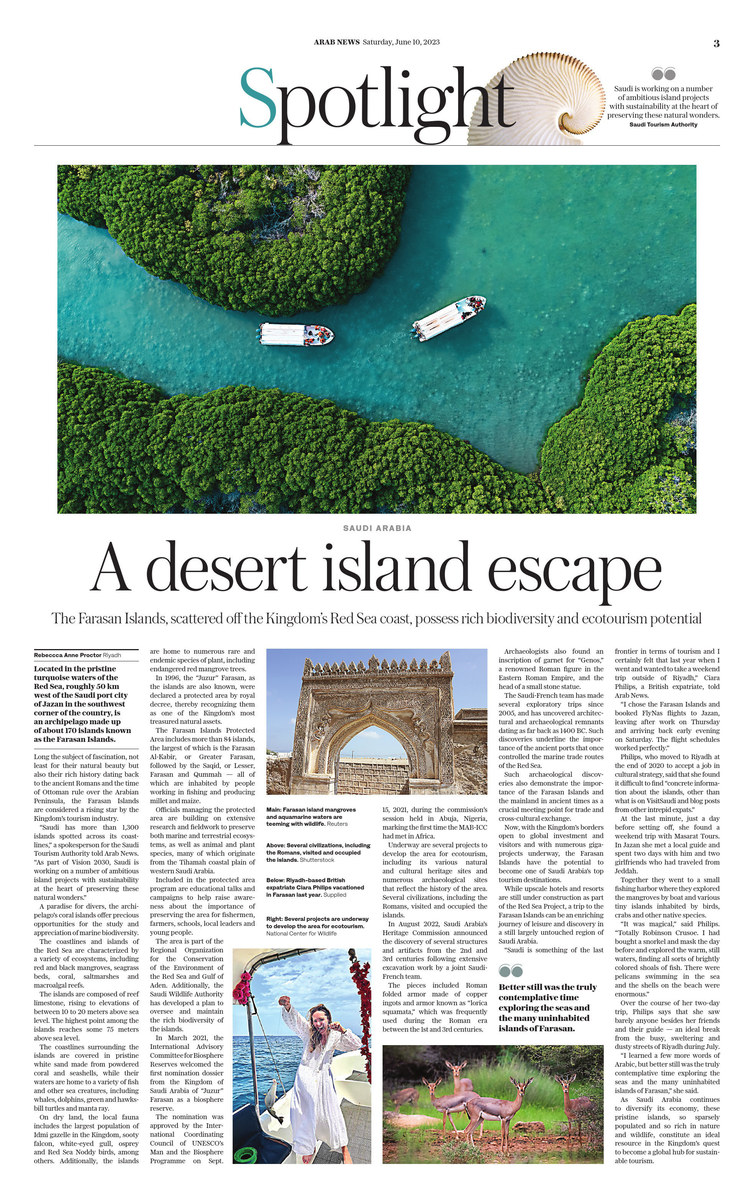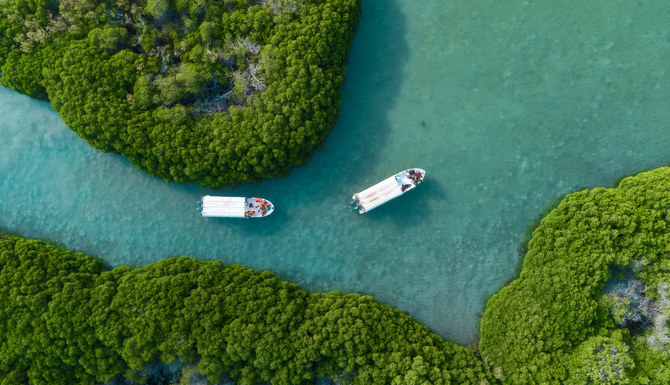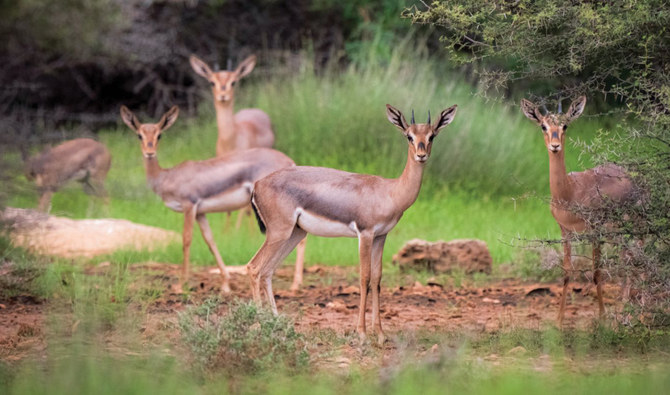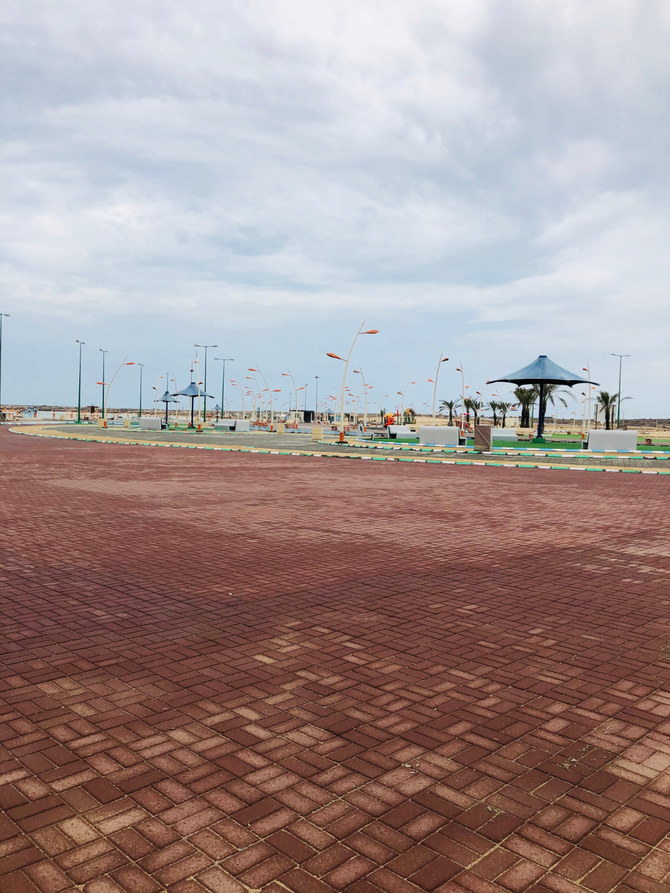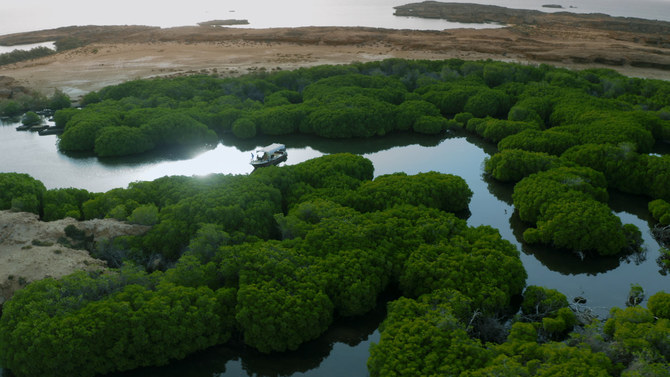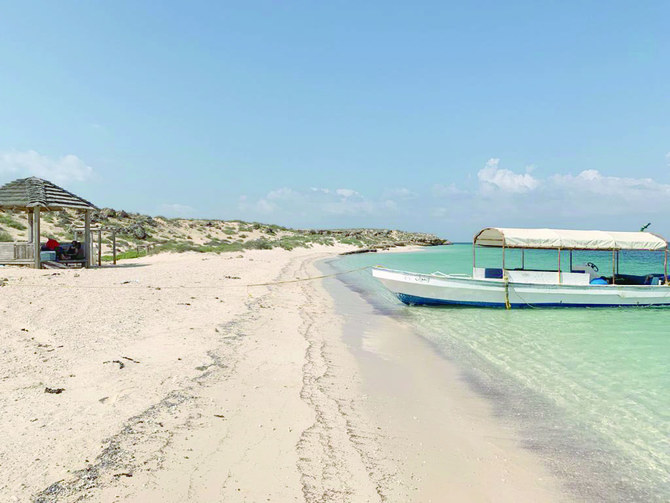RIYADH: Located in the pristine turquoise waters of the Red Sea, roughly 50 km west of the Saudi port city of Jazan in the southwest corner of the country, is an archipelago made up of about 170 islands known as the Farasan Islands.
Long the subject of fascination, not least for their natural beauty but also their rich history dating back to the ancient Romans and the time of Ottoman rule over the Arabian Peninsula, the Farasan Islands are considered a rising star by the Kingdom’s tourism industry.
“Saudi has more than 1,300 islands spotted across its coastlines,” a spokesperson for the Saudi Tourism Authority told Arab News. “As part of Vision 2030, Saudi is working on a number of ambitious island projects with sustainability at the heart of preserving these natural wonders.”
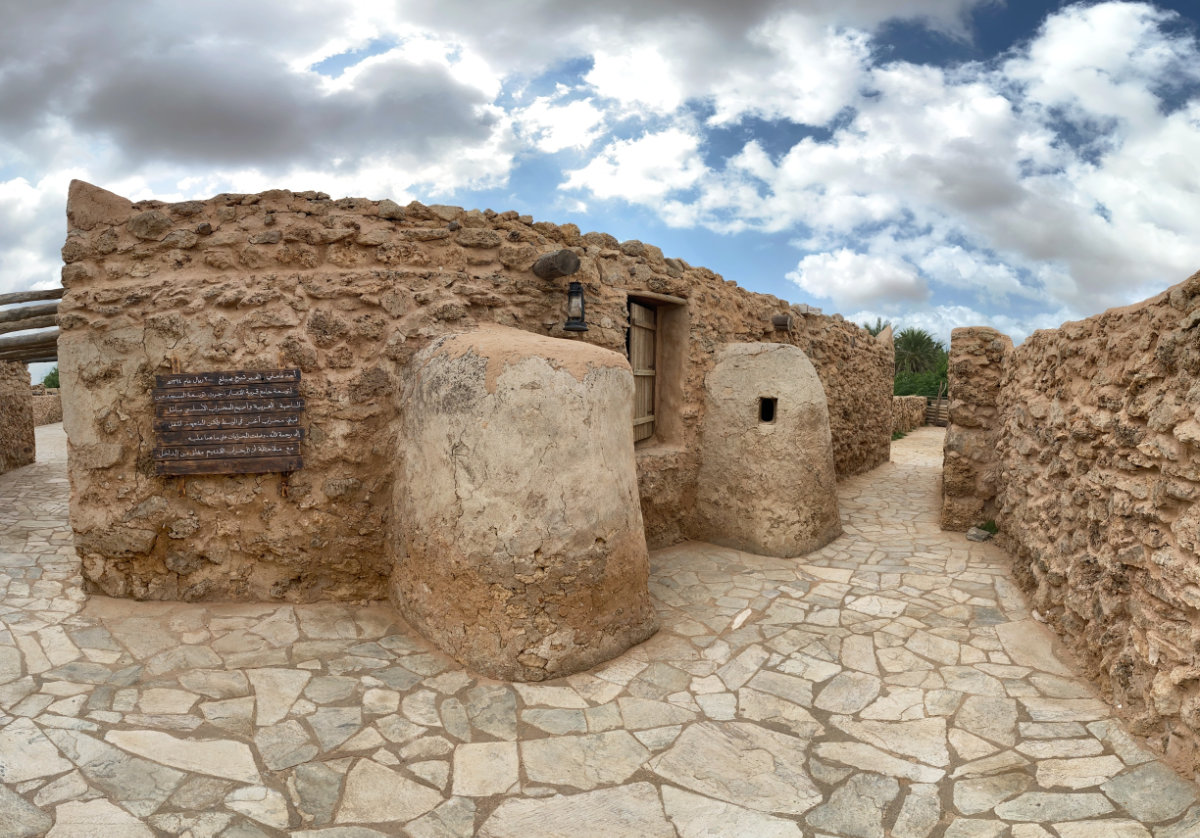
An ancient mosque has withstood the test of time in a deserted village in the Farasan islands. (Shutterstock)
A paradise for divers, the archipelago’s coral islands offer precious opportunities for the study and appreciation of marine biodiversity.
The coastlines and islands of the Red Sea are characterized by a variety of ecosystems, including red and black mangroves, seagrass beds, coral, saltmarshes and macroalgal reefs.
The islands are composed of reef limestone, rising to elevations of between 10 to 20 meters above sea level. The highest point among the islands reaches some 75 meters above sea level.
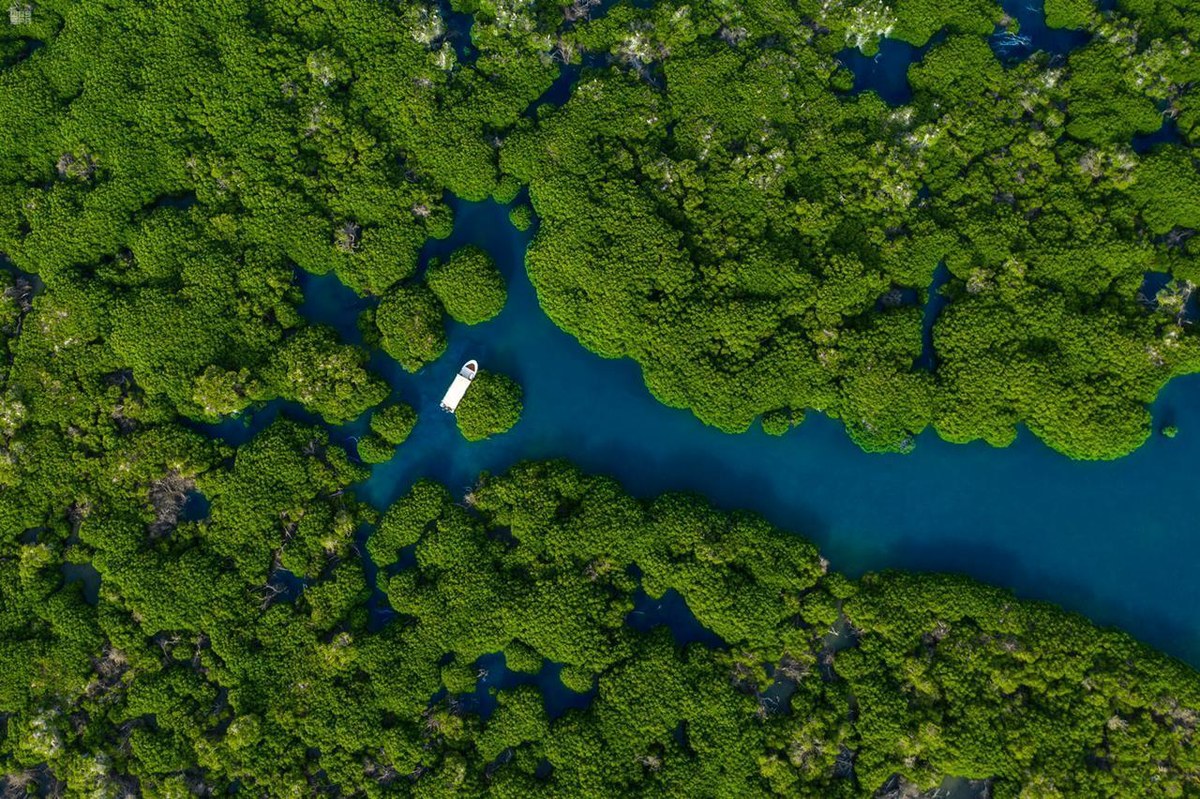
Aerial view of a boat touring the lush mangroves and waterways of the Farasan Islands. (Saudi Tourism Authority photo)
The coastlines surrounding the islands are covered in pristine white sand made from powdered coral and seashells, while their waters are home to a variety of fish and other sea creatures, including whales, dolphins, green and hawksbill turtles and manta ray.
On dry land, the local fauna includes the largest population of Idmi gazelle in the Kingdom, sooty falcon, white-eyed gull, osprey and Red Sea Noddy birds, among others. Additionally, the islands are home to numerous rare and endemic species of plant, including endangered red mangrove trees.
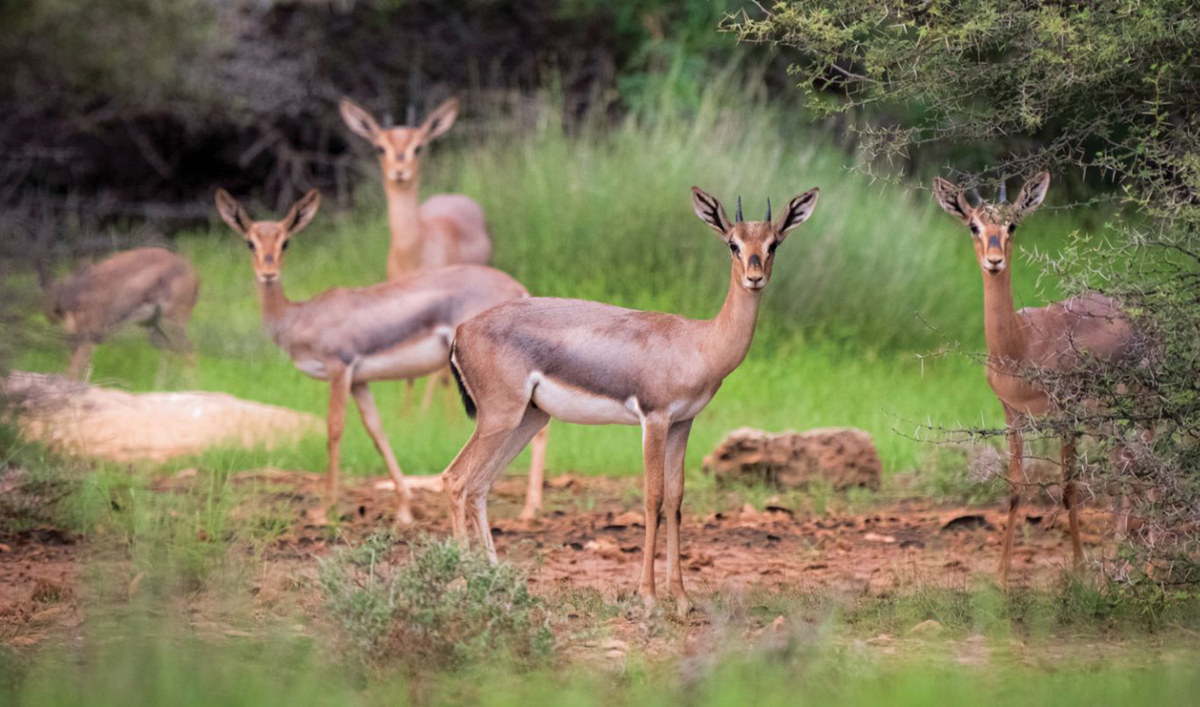
Farasan Islands are home to wildlife, such as the Idmi gazelle, numerous birds as well as rare and endemic plant species. (National Center for Wildlife photo)
In 1996, the “Juzur” Farasan, as the islands are also known, were declared a protected area by royal decree, thereby recognizing them as one of the Kingdom’s most treasured natural assets.
The Farasan Islands Protected Area includes more than 84 islands, the largest of which is the Farasan Al-Kabir, or Greater Farasan, followed by the Saqid, or Lesser, Farasan and Qummah — all of which are inhabited by people working in fishing and producing millet and maize.
Officials managing the protected area are building on extensive research and fieldwork to preserve both marine and terrestrial ecosystems, as well as animal and plant species, many of which originate from the Tihamah coastal plain of western Saudi Arabia.
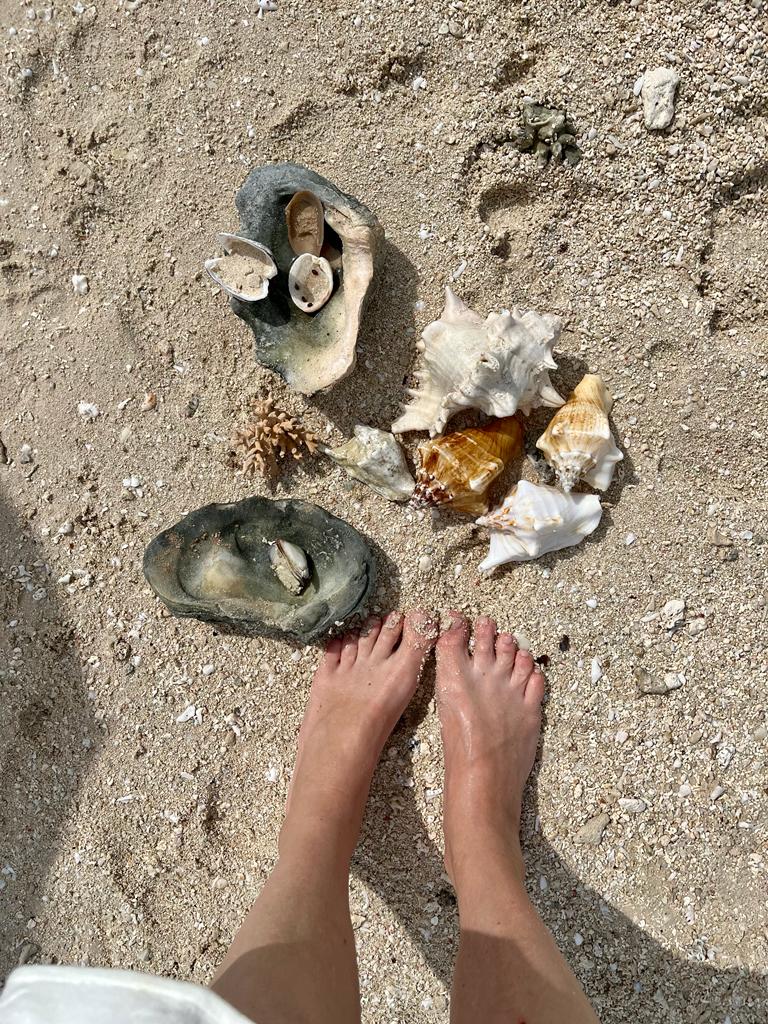
A visitor examines seashells at one of the popular beaches in the Farasan Islands. (Saudi Tourism Authority photo)
Included in the protected area program are educational talks and campaigns to help raise awareness about the importance of preserving the area for fishermen, farmers, schools, local leaders and young people.
The area is part of the Regional Organization for the Conservation of the Environment of the Red Sea and Gulf of Aden. Additionally, the Saudi Wildlife Authority has developed a plan to oversee and maintain the rich biodiversity of the islands.
In March 2021, the International Advisory Committee for Biosphere Reserves welcomed the first nomination dossier from the Kingdom of Saudi Arabia of “Juzur” Farasan as a biosphere reserve.
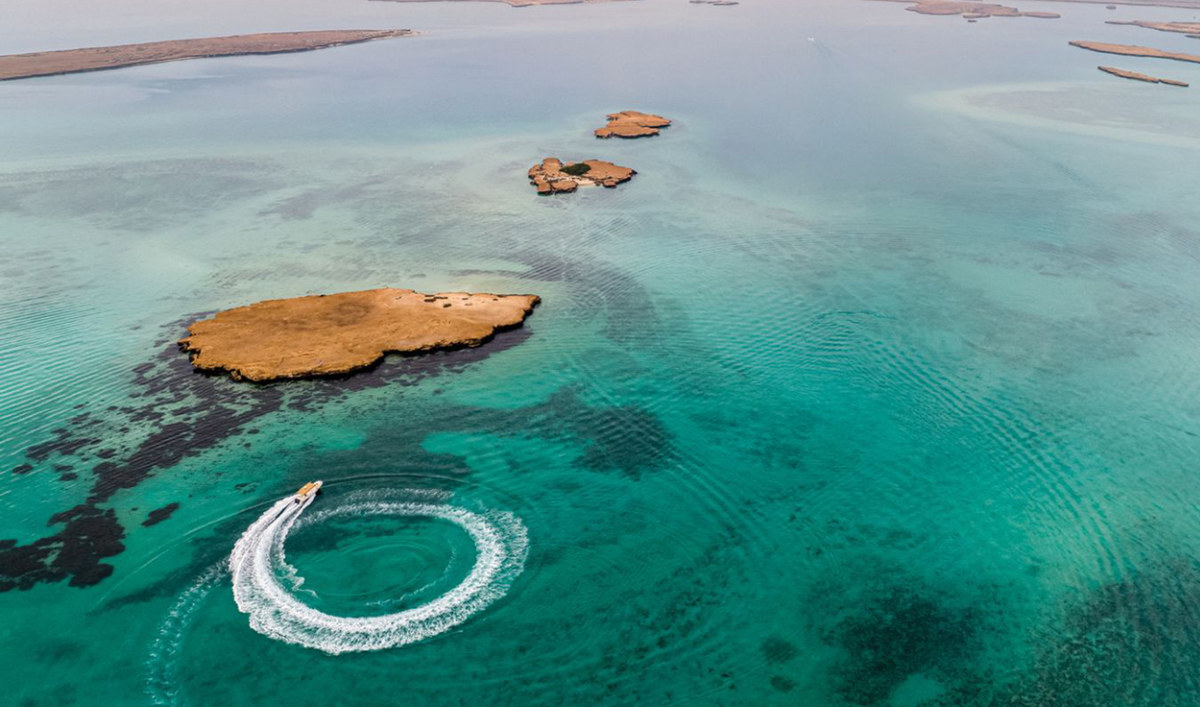
Aerial view of a boat circling round the waterways of the Farasan Islands off the coast of Jazan. (SPA file photo)
The nomination was approved by the International Coordinating Council of UNESCO’s Man and the Biosphere Programme on Sept. 15, 2021, during the commission’s session held in Abuja, Nigeria, marking the first time the MAB-ICC had met in Africa.
Underway are several projects to develop the area for ecotourism, including its various natural and cultural heritage sites and numerous archaeological sites that reflect the history of the area. Several civilizations, including the Romans, visited and occupied the islands.
In August 2022, Saudi Arabia’s Heritage Commission announced the discovery of several structures and artifacts from the 2nd and 3rd centuries following extensive excavation work by a joint Saudi-French team.
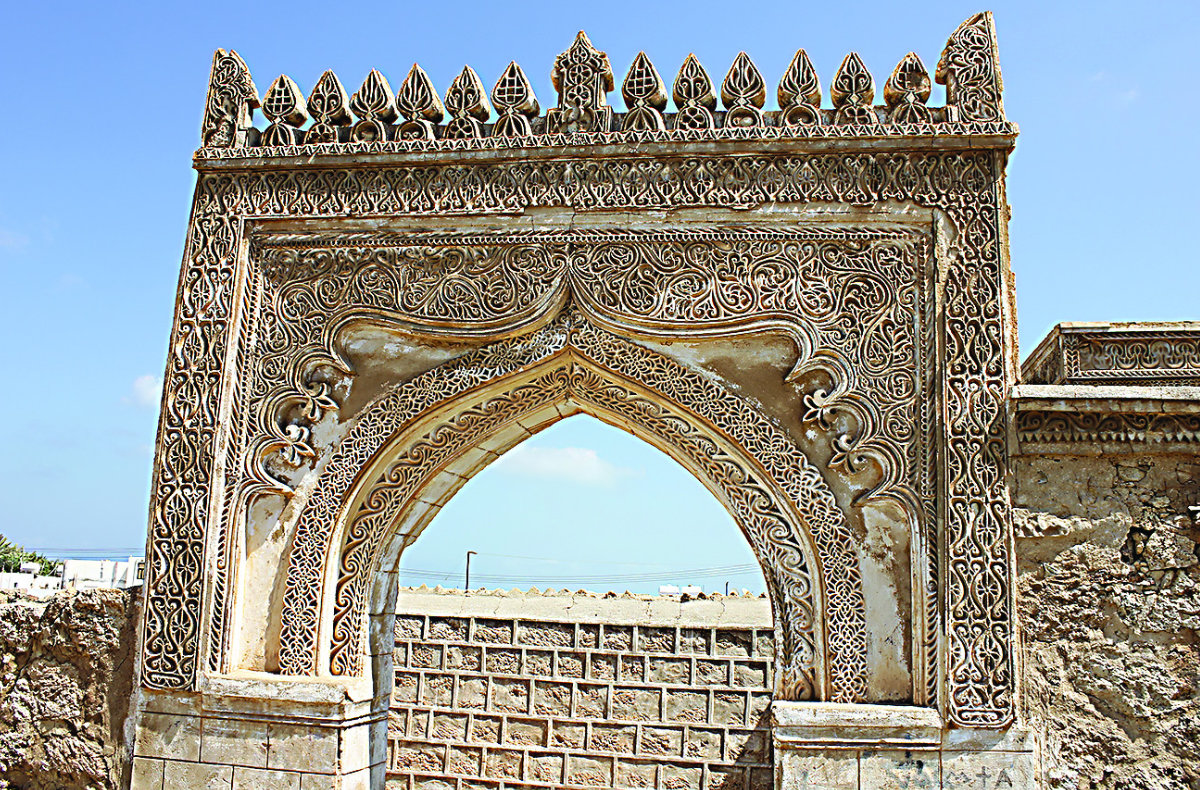
Several civilizations, including the Romans, visited and occupied the islands. (Shutterstock)
The pieces included Roman folded armor made of copper ingots and armor known as “lorica squamata,” which was frequently used during the Roman era between the 1st and 3rd centuries.
Archaeologists also found an inscription of garnet for “Genos,” a renowned Roman figure in the Eastern Roman Empire, and the head of a small stone statue.
The Saudi-French team has made several exploratory trips since 2005, and has uncovered architectural and archaeological remnants dating as far back as 1400 BC. Such discoveries underline the importance of the ancient ports that once controlled the marine trade routes of the Red Sea.
Such archaeological discoveries also demonstrate the importance of the Farasan Islands and the mainland in ancient times as a crucial meeting point for trade and cross-cultural exchange.
Now, with the Kingdom’s borders open to global investment and visitors and with numerous giga-projects underway, the Farasan Islands have the potential to become one of Saudi Arabia’s top tourism destinations.
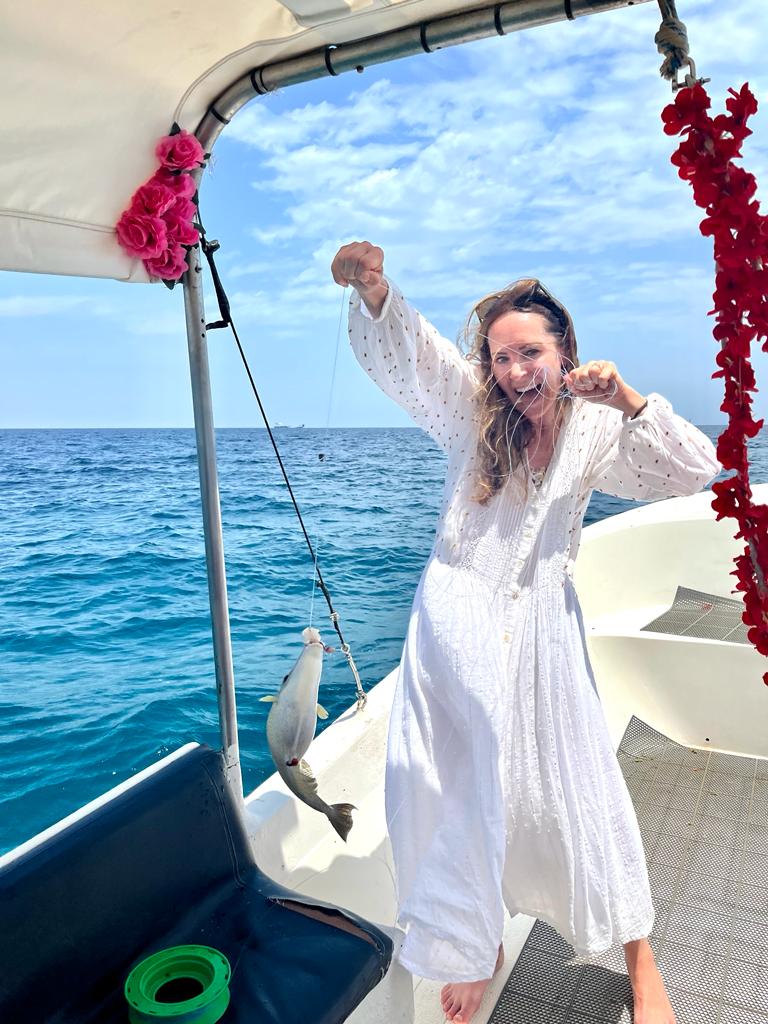
Riyadh-based British expatriate Ciara Philips vacationed in Farasan last year. Supplied
While upscale hotels and resorts are still under construction as part of the Red Sea Project, a trip to the Farasan Islands can be an enriching journey of leisure and discovery in a still largely untouched region of Saudi Arabia.
“Saudi is something of the last frontier in terms of tourism and I certainly felt that last year when I went and wanted to take a weekend trip outside of Riyadh,” Ciara Philips, a British expatriate, told Arab News.
“I chose the Farasan Islands and booked FlyNas flights to Jazan, leaving after work on Thursday and arriving back early evening on Saturday. The flight schedules worked perfectly.”
Philips, who moved to Riyadh at the end of 2020 to accept a job in cultural strategy, said that she found it difficult to find “concrete information about the islands, other than what is on VisitSaudi and blog posts from other intrepid expats.”
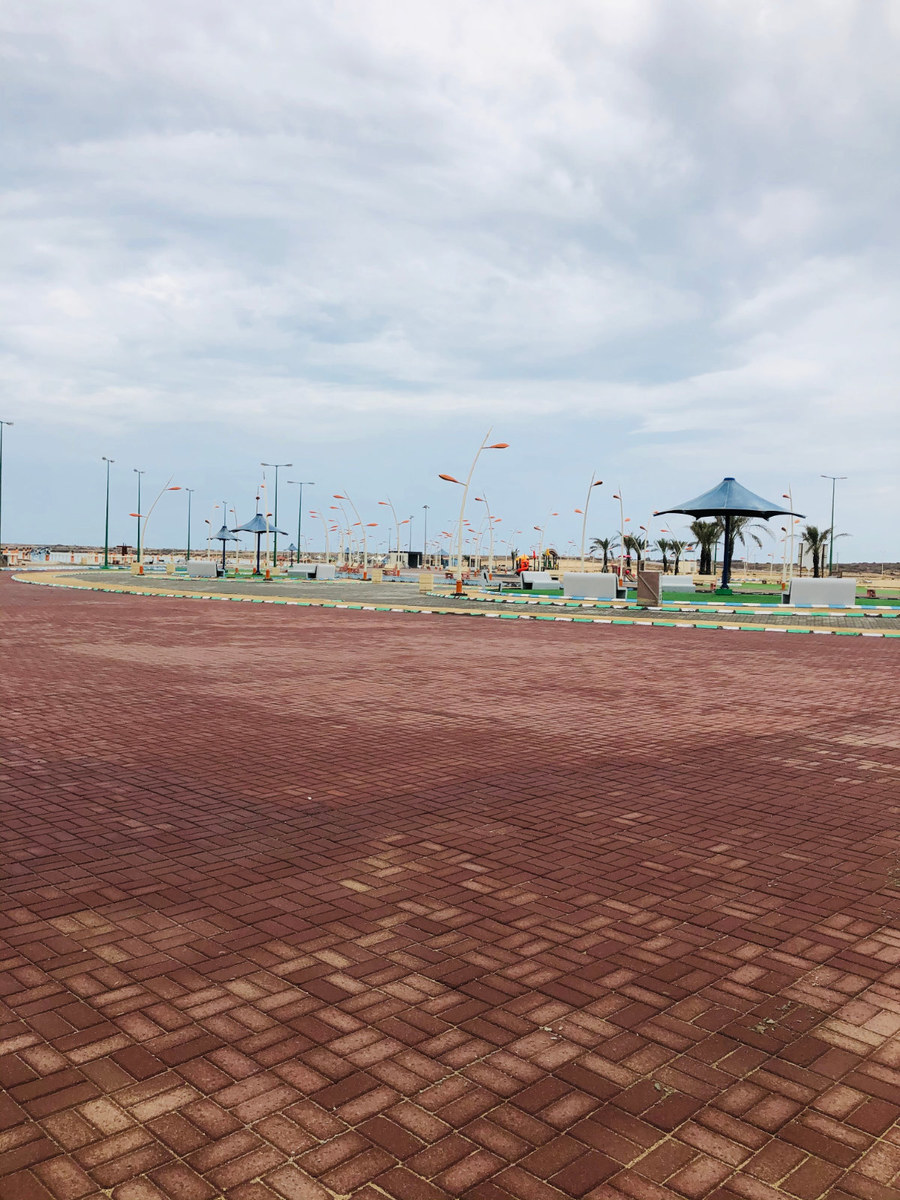
Several projects are underway to develop Farasan Islands for ecotourism. (National Center for Wildlife)
At the last minute, just a day before setting off, she found a weekend trip with Masarat Tours. In Jazan she met a local guide and spent two days with him and two girlfriends who had traveled from Jeddah.
Together they went to a small fishing harbor where they explored the mangroves by boat and various tiny islands inhabited by birds, crabs and other native species.
“It was magical,” said Philips. “Totally Robinson Crusoe. I had bought a snorkel and mask the day before and explored the warm, still waters, finding all sorts of brightly colored shoals of fish. There were pelicans swimming in the sea and the shells on the beach were enormous.”
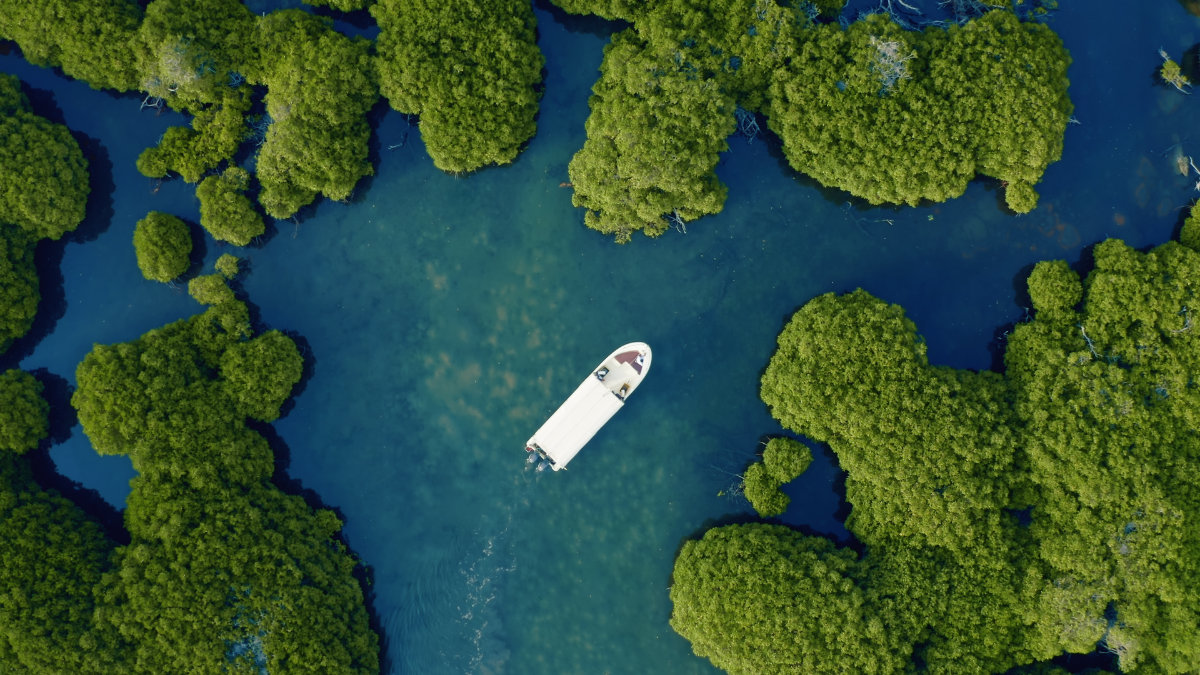
Several projects are underway to develop Farasan Islands for ecotourism. (National Center for Wildlife)
Over the course of her two-day trip, Philips says that she saw barely anyone besides her friends and their guide — an ideal break from the busy, sweltering and dusty streets of Riyadh during July.
“I learned a few more words of Arabic, but better still was the truly contemplative time exploring the seas and the many uninhabited islands of Farasan,” she said.
As Saudi Arabia continues to diversify its economy, these pristine islands, so sparsely populated and so rich in nature and wildlife, constitute an ideal resource in the Kingdom’s quest to become a global hub for sustainable tourism.
